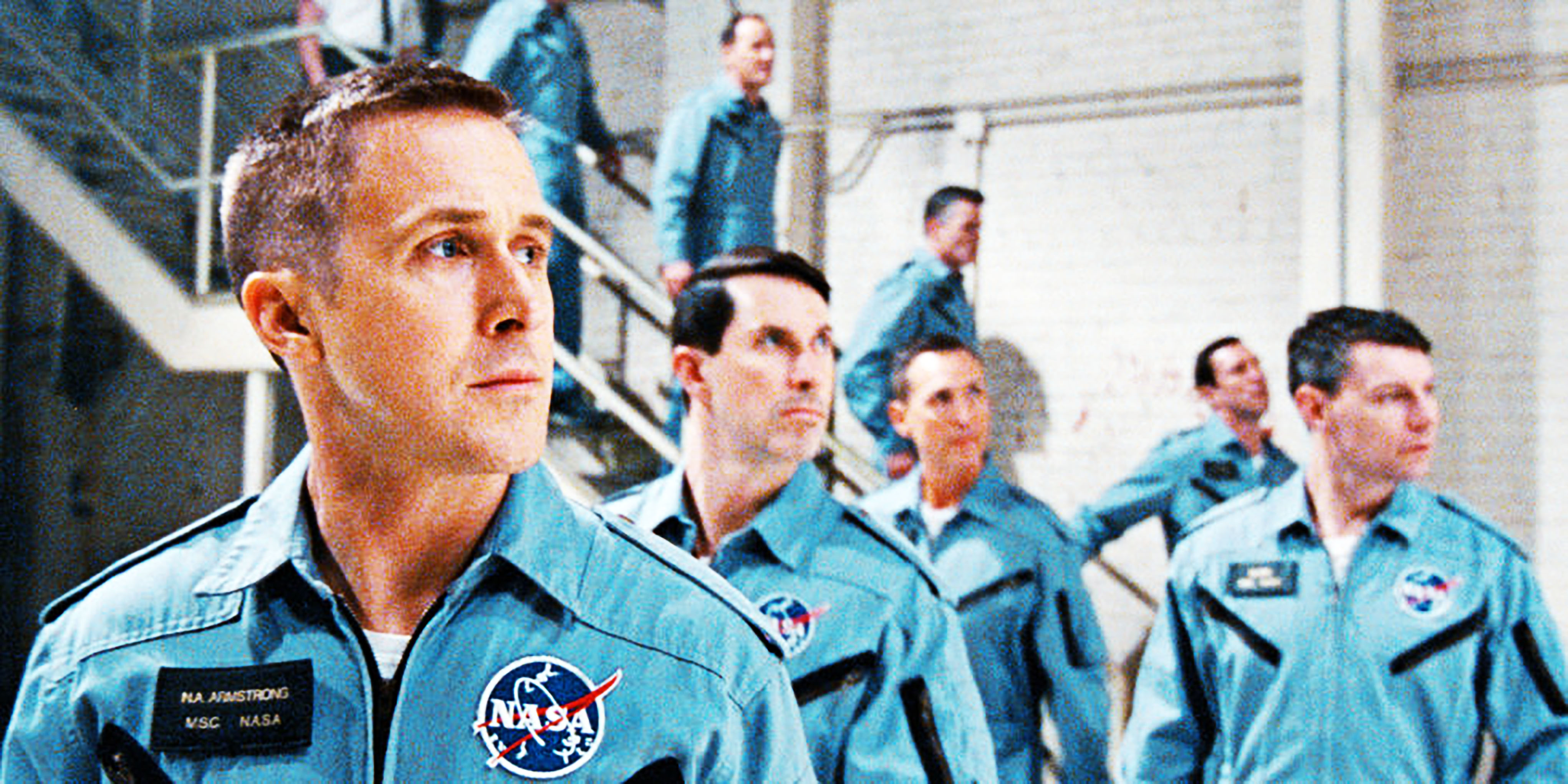Ever since his success with Whiplash and La La Land, director Damien Chazelle has been under the spotlight, with his supporters looking forward to his next film. When First Man was first announced earlier this summer, people were really surprised. It is a movie with content significantly different than Chazeller’s first two projects. It divulged from a music-oriented narrative and went up… to space. People were excited to see what Chazelle was going to bring to the table regarding the trip to the moon, as there have been countless other films, most noticeably Apollo 13 directed by Ron Howard, that explore space travel. The question that now remains is: How is First Man?
First Man, if the name is not clear enough, is all about the first man to walk on the moon, Neil Armstrong. The movie follows Armstrong through his journey of getting to the moon. In fact, compared to movies such as Apollo 13, the moon landing is only a fragment of the whole movie. The movie prefers to focus on the human aspect of such a trip- what such a trip entails for the family of the astronauts and for the astronauts themselves. The audience sees Armstrong go through rigorous physical examinations, the testings of rockets and much more. First Man has a slow pace, but it is not boring. The storyline constantly develops over the movie, whether it be through capturing the the relationship between Armstrong and his wife or his experience losing some of his fellow astronauts during rocket testing.
One thing that is definitely at the forefront with First Man is its cinematography. The close-ups and overall tightness of the shots give the audience a sense of claustrophobia that perfectly emulates how the astronauts feel as they are strapped into a tiny cockpit and fired into space. Even though the audience knows that the trip to the moon was successful, the shakiness of the camera and the tense atmosphere created by such camera placements and movements add suspense– as if the characters are not going to be able to make it.
Another critical aspect of the movie, even though it might seem unimportant to some, is its shooting format. Chazelle and the cinematographer Linus Sandgren decided to use 16mm film for the sections on Earth to give a documentary aesthetic to the whole film and make it feel as if it was recorded during the actual launch. However, as soon as Aldrin and Armstrong land on the moon, the camera switches to IMAX, with the frame expanding and the quality improving. This format change gives the scenes on the moon an almost ethereal and stimulating feeling. The point-of-view shots that are used during the segments on the moon increase this sensation and transport the audience there. It is this encapsulating of the audience in which First Man succeeds and is unforgettable.
Another positive aspect of the film is its soundtrack. Justin Hurwitz has managed to craft a soundtrack that is not only intimate and familiar but also strange and unknown. It is this theme of the soundtrack that summarizes the whole movie and, in fact, the whole idea of going to the moon. The moon, something that we see on a daily basis, is familiar and yet unknown because it is so far away.
However, one issue with the movie is its plotline. The movie takes place over a course of eight years, starting at 1961 and going all the way up to the launch of Apollo 11 in 1969. Despite this large time frame, the film is edited in a way that makes the whole movie feel as if it takes place over a course of 2 weeks. The transitions from scene to scene make it feel as if Neil Armstrong is experiencing everything back-to-back with no break in between. The lack of noticeable character changes in between these time jumps further enforces this idea.
Another issue is the portrayal of Neil Armstrong. Ryan Gosling does a great job of portraying Armstrong as stoic and reserved, but it is this personality that makes the film lack interesting character dynamics. Armstrong does not have any dramatic arguments with his wife, his colleagues or his bosses. This lack of depth in Armstrong puts a lot of responsibility on Claire Foy’s character, Janet Armstrong. Even though she puts on an amazing performance, it is not enough to carry the movie by itself.
First Man is definitely a must-see, even though it is not a ground-breaking blockbuster. It is definitely an interesting take on the trip to space and provides a unique perspective by deciding to focus on the people involved in the event rather than the event itself. Chazelle has definitely crafted an amazing experience when it comes to walking on the moon and experiencing another planet. This experience is not enough to cover up for the lack of stellar performances and the choppy plotline. If anything, First Man proves that putting the life of a stoic on a big screen is not as desirable as one would want it to be. •










